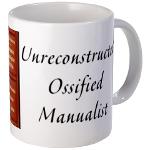 From a reader…
From a reader…
QUAERITUR:
if the priest says” of your Sins, instead of “from your Sins” in absolution would the Absolution still be valid and if it is valid could you explain where of and from differ or were they are the same
That was valid.
The formula of absolution is, in its short form, “Ego te absolvo a peccatis tuis, in nomine Patris +, et Filii, et Spiritus Sancti… I absolve you from your sins in the name of the Father +, and of the Son and of the Holy Spirit.”
This is the last part of a longer formula, updated – post-Conciliar – which in translation is, “God, the Father of Mercies, through the death and resurrection of his Son has reconciled the world to himself and sent the Holy Spirit among us for the forgiveness of sins; through the ministry of the Church may God give you pardon and peace, and I absolve you from your sins in the name of the Father, and of the Son, and of the Holy Spirit. Amen.” The short version suffices by itself in a pinch. More and more priests these days are using the older, traditional form of absolution as well.
Remember that the true form of absolution is in LATIN. All other approved forms in other languages are translations. I absolve you from and of your sins mean essentially the same thing. So, “of” does not invalidate the form.
However, the very fact that you were worried about it, it argument enough for priests to stick to the exact words as approved.
That said, we can drill into this a little.
St. Thomas Aquinas argues (though his opinions are not the equivalent of the Church’s Magisterium – never forget that!) that “Ego te absolvo” is the form of the sacrament (ST III, Q. 84, Art. 3). If he is right, then that may suffice.
The Catechism of the Council of Trent, reliable and surely an expression of the Church’s Magisterium, and surely working from Aquinas has this:
Pastors should not neglect to explain the form of the Sacrament of Penance. A knowledge of it will excite the faithful to receive the grace of this Sacrament with the greatest possible devotion. Now the form is: I absolve thee, as may be inferred not only from the words, whatsoever you shall bind upon earth shall be bound also in heaven, but also from the teaching of Christ our Lord, handed down to us by the Apostles.
 These days it seems that the minimum form in the Latin Church (the Eastern Churches have their own somewhat different practices) is “Ego te absolvo a peccatis tuis… I absolve you from your sins.” As far as I can tell, this is what most authors stand by.
These days it seems that the minimum form in the Latin Church (the Eastern Churches have their own somewhat different practices) is “Ego te absolvo a peccatis tuis… I absolve you from your sins.” As far as I can tell, this is what most authors stand by.
Because I am an Unreconstructed Ossified Manualist, I consulted several manuals (e.g., Tanquerey, Prümmer, Sabetti Barrett). They all come to the same basic conclusion. “Absolvo te a peccatis tuis” is certainly valid, and “Absolvo te” is probably valid, but if possible the longer form should be repeated to be sure.
Part of the problem here – aside from the arrogance of priests who screw around with the form of absolution – is the notion of using regularly the bare minimum. That suggests that perhaps the rest is not so important.
If you confess to a priest who regularly does something dodgy with the form of absolution, I would politely bring it up, as you did.
People are within their rights to have the form of absolution spoken as it is in the book. Ask the priest to give you absolution with the proper form. Do not be nasty or aggressive about this.
If that doesn’t help, talk to the pastor of the parish and/or the local bishop.
Remember that the priest himself cannot talk about the confession because he is bound by the Seal. Therefore, you can politely inform the the bishop about your experience of the form of absolution. You would have to include that you have been to this priest several times and that he has always done the same thing. Do not run him down. Do not add lots of observations. Do not try to teach the bishop his job or theology.
Ideally, the bishop (or pastor) would then have a chat with the priest during which the priest would be informed that word had come that he isn’t using the proper form of absolution and, if true, that should be corrected – lest in the future he receive in spades the wrath of the whatever from high atop the thing.
If that doesn’t produce results, send a copy of your correspondence to the Congregation for the Doctrine of the Faith (not Divine Worship) and seek a clarification.
Fathers! Don’t fool around with the words of absolution or of any other sacrament Remember what happened when men screwed around with the form of baptism! At the minimum about are being anxiogenic! It may be that you have slipped into some variant and, over the years, don’t even realize you are doing it. REVIEW. This is the nuts and bolts of our work! And it isn’t even that hard!
As for the rest of you…
GO TO CONFESSION!



































i am so happy to have found a new confessor (this priest was just assigned to my parish this summer) who is so far 100% by the book. better yet, he teaches at the local seminary so i am hopeful that an extra measure of his spirit will be poured out on his students.
Because I am an Unreconstructed Ossified Manualist, I consulted several manuals (e.g., Tanquerey, Prümmer, Sabetti Barrett).
/I consulted Tanquerey also: after about the 6th gin and tonic, I really needed the best solution here: ABsolution. / ;-) To make my sinsth be absynthe.